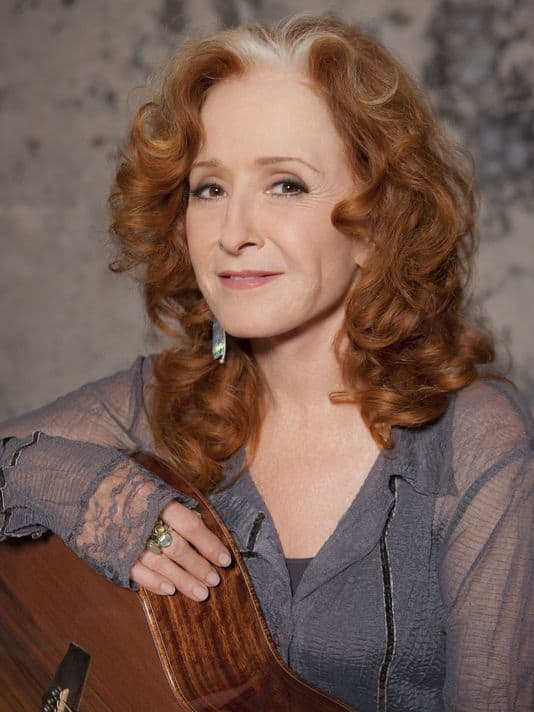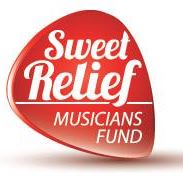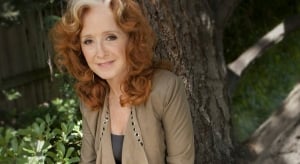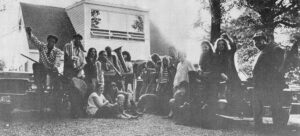
by Maranda Pleasant
Maranda Pleasant: You’ve done so much with conservation. You’re a heroine for so many who work in conservation, and with endangered species. You donate so much of your time. Is there something that makes it personal for you?
Bonnie Raitt: There are so many people out there working with great grassroots and global and national organizations that are unsung heroes to me. And those of us with a microphone who are blessed with the gift of being in the public eye have a special opportunity to give voice to all those groups whose activism is sometimes ignored or put on the back pages with the the dumbing down of television and the tabloidization of journalism. As Ralph Nader called it, “sound barks,” not even sound bites.
Really important issues are getting lost, so I can say I’m glad to be a citizen of the planet and do my part. I think that we have a unique opportunity as performers and artists to be kind of the town criers and also to get more people to listen, so that’s a blessing and a responsibility that I take very seriously. I have to stay informed about the issues across the board, between gun control and Native American rights, women’s rights, safe food, plastic pollution, safe energy, clean air and water, our resources, and conservation and efficiency.
I don’t know if I’m a heroine; I’m just somebody that can cheer the troops by singing to folks, and have receptions after the show, and tithe a dollar of every ticket sale for all kinds of different great charities and social action groups. There are a lot of people that never get their stories told.
MP: Is there something that makes it deeply personal for you? Is there some issue that you feel really personally connected to that makes it personal?
BR: Absolutely. Part of the reason I had such a drive to be an activist, and support other activists, is because I was raised Quaker and my parents kept us very much informed and involved as kids in civil rights and the conservation movement. A dear family friend started Save the Redwoods league, up in the Palo Alto region of California, and I just remember being very much aware of the efforts to protect the water, the quality of water, and later in my adult years, the threat of oil rigs in California. It’s very personal in California to live within hours, and sometimes just a few miles, of earthquake faults when nuclear plants were being built. Between the redwoods, growing up and enjoying nature, camping on almost every vacation, and getting to go to summer camp in the Adirondacks, it was really very apparent to me that we had to preserve what we had on the earth. I learned so much from studying Native American approaches to balance with the earth, and I have to say that since I was a kid, I was raised with the blessing of being involved with peace and social justice, and the environmental movement. I have my parents to thank for that. ›

MP: Well, I love you even more! [Laughs.]
BR: Oh god. Well thank you for saying that, but when they were putting oil rigs up and down the California coast, the whole issue of safe energy and the addiction to fossil fuels really came into focus. The connection between toxicity and cancer and safe air and water and food, all of that was important all along, as were women’s and human rights issues, but the nuke issue and the safe energy movement became really important to me in the mid-’70s.
MP: What’s the new revolution now?
BR: Well, there’s so many amazing articles coming out all the time and because of the internet circulating great writing—even if the writers don’t get paid enough most of the time, unfortunately—but there’s never been a more amazing flow of information on all of the issues. I would love to see a revival of what we had against the war in the ’60s—we could do these teach-ins on the internet, live and split screen, and have real in-depth debate between people that are on the “other” side of issues—nuclear, gun control, whatever. We could really be having a much more democratically involved and exciting debate with people emailing their questions and having a virtual town meeting. I think it would be a really exciting way to re-engage and engage this new generation—many of whom are really angry and frustrated and have grown up with nothing but ineffective government and money hijacking the whole political system. They don’t know it any other way. I mean, those of us who grew up in the ’50s and ’60s, we had the dream that this could be turned around, and the earth could be back in balance, and that we could level the playing field with men and women and pay, and you know, minority groups having equal opportunity. We just magically thought this was all going to happen: we were going to have clean food, and organic this, and conscious that, and it just didn’t happen. We need the people who are doing the hard work in the forefront, like Mark Ruffalo and leonardo DiCaprio. There’s so many people working to get more attention in the press and it seems to be working.
MP: Tell me about your work with women becoming more powerful and equal. Is there anything you wanted to say around that, about women’s issues?
BR: I have been really heartened by how much coverage there has been about inequality of pay across the board, between the entertainment industry and almost every industry worldwide. And just the problem of young women not getting an education, not being able to have an equal position in the cultures all around the world. There’s been just a fantastic explosion of articles that I haven’t seen in many, many years and films coming out like Suffragette. There’s a lot of synchronicity that’s blowing open the issue and I think it’s engaging across the aisle politically— whatever religion or political affiliation you are, whatever race you are, whatever age you are, everybody is concerned about it. So I think people speaking out on all levels in every different profession is really helping out. I’m encouraged by it.

MP: What is something that you’ve struggled with in your life and what’s something that really helped you work through it or transform it? I’m all about vulnerability and suffering.
BR: Yeah, well in my case I’ve been sober for 30 years. You know, a lot of people feel that sobriety is about just stopping using whatever it was that you appeared to be addicted to, but it really has to do with a way of looking at your life and taking accountability. The big turning point for me was being unconscious to the way that my behavior was impacting myself and other people. I tended to think, “Oh, if only this person would act better this way or the record company would do this,” putting that focus on an explanation or the blame outside of myself, that was a lot of my story, a lot of the self-pity involved—it led to my feeling that I needed comfort or I needed to vent or this or that. But I started to understand that the kinds of personalities and backgrounds that lead you to have a little bit more of something, whether it’s a dependency on overworking, or sex, or gambling, or substance abuse. understanding how we become unbalanced that way and addicted, and what that personality is, has been a real eye-opener for me. The challenge of course is in sobriety and that’s been the blessing, to realize, to take accountability for the ways that your own thinking impacts your happiness, and your serenity, and your ability to be a productive and a loving, giving member of your family and society. So the same thing that was my problem has become a silver lining, really.
MP: My personal mantra. I think sometimes I slip into that, not realizing how much I’m responsible for the energy I bring into a room or a situation.
BR: Yeah, exactly, and we become those personas, you know. Whatever role we were in our family of birth, we take on this persona and in your 20s and 30s in particular, you end up thinking that’s you and that isn’t necessarily you. You’re all kinds of things: you’re still eight years old, you’re still the 90-year-old along with the current 66-year-old, so there are all these playful and cranky and flawed and magnificently strong and vulnerable . . . all those things at the same time and just learning how to be realistic and not let yourself coast too much and go numb, and abusing whatever it is that makes you go numb to not deal with stuff. It’s a lot harder to be clear-headed, but the good stuff is when you start realizing who’s really you. I don’t want to sound like a self-help book, but it really has been transformative for me to take a look at my relationships in a new way and see my part in them. Everybody’s going through that.
The women’s movement resurgence of standing up for so many things that were kind of sleepy there for a decade or so, there’s been a reawakening and I think the consciousness movement in general is dovetailing with a lot of recovery and self-empowerment. There’s so much power and support in a support group of any kind, whether it’s your closest friends or an actual group you attend because you had a problem and you want fellow people that are as twisted as you are, or whatever. The fact is that this conversation is going on at every level at every age, we’re all going, “God, what a jerk I’ve been,” “How could I have married that guy?” or “How could I have done this or that?” With time, this is the gift of being older, that you get to look back and say, “It wasn’t all about them.” ›


MP: And have you noticed sometimes where you’re in a spiral and you really put too much energy on what they did and it’s becoming more and more like, “Wow, what role did I play?”
BR: I wrote a song on my new album that’s all about that. That’s the last song on my new record.
MP: What’s it called?
BR: “The Ones We Couldn’t Be” and that’s what it’s all about. That’s exactly what this is about. It’s the last song on record and it’s one I wrote.
MP: I’m going to replay that as soon as we get off the phone. I think you’re kind of like a cult figure for a lot of women.
BR: Well, thank you, I’m glad I present that but I’m hoping people can really see what I sing about and who I am in public. There’s lots of flaws and frailties and cracks in the armor, and nobody wants to put themselves out there as some kind of Joan of Arc because none of us can live up to that, but I’m grateful to be a role model and be respected because I have a whole slew of people, men and women, that I feel the same way about. And I’m happy to have been a positive influence.
MP: I think it’s your vulnerability that really allows us to connect to you because we can see our own vulnerability. Is there a truth that you know for sure?
BR: We create our own happiness. The one thing I know is that if you’re not paying attention, it will come back to bite you. Whether you should be spinning in a sort of toxic swirl of drawing people to you that feed that story that you keep telling yourself and them, and you re-create your own pain and your own excuse, whether it’s procrastinating, or not living up to your own potential, or pulling your wings in because you don’t want to look too powerful. You create the happiness and the balance that you have, and your own power. This is one thing that I know to be true. You know, it was something that I came to realize more and more—when I recognize something is not working, I pull myself out of it. Then I can go, “Wow, I’m a lot happier.” I learned by experience that you can change your circumstance. It’s as simple as the serenity prayer; it’s a very, very real thing.
MP: Beautiful. “Pulling in your wings.” I’ve never actually heard someone phrase it like that. As you evolve as a woman and as a being, does your music evolve with you? Is this album different than what you’ve done in the past for you emotionally?
BR: I don’t go into any album with a concept or a deliberate direction. It’s more letting the best music that really appeals to me at the time, the best songs that I find after many months and years of search and sifting through my collection, and asking radio people and journalists. It’s really an ongoing search that’s as much daunting as it is somewhat exciting. I mean it’s always enjoyable to listen to a friend’s work, but if it doesn’t resonate with you, then you can just appreciate it and it inspires you in its own way. But going into this record, it’s really a matter of finding 11 or 12 songs that really speak to me at the time. This time I was able to co-write three and write two of my own. I hadn’t written in a long time, so it was really based on grooves that I wanted to play in my show that were kind of missing. You know, one was a gospel shuffle and that was “What You’re Doing to Me.” Some of them were thematically things that I wanted to say. So my tunes were things that I wanted to express musically and lyrically. The other songs, they find their way to me, and when there’s a good fit, I know they’re right for me. It takes a long time, and when I get enough, that’s when I have the record. So it isn’t any different, the process isn’t any different than any of the other records I’ve made. But hopefully people will just hear 12 more great new songs, played with my wonderful band.
I’m so happy to be held in the respect that you’re clearly holding me in and I have a forum to say what’s important. usually I’m talking about guitar strings. Most of the time I am talking track by track and people ask about the band and stuff like that, so it’s really nice for me to be able to stretch out a little bit and talk about bigger issues.

MP: I think people love you as a whole person. I think people love your music, but I also think people are in love with the vulnerability and rawness you exude. You’re so down to earth, there’s no way to separate you from your music.
BR: Well that’s the best review I’ve gotten.
MP: You’re one of those in-your-bones musicians. You make people feel it in their bones. To me, I don’t know a guitar riff, but I know that I’m not alone in this world, I know I’m going to get through it. That’s what you give people and that’s why I’m excited about this album.
BR: What a wonderful thing to say. I called it Dig in Deep because that happens to be a lyric from the first song. The band and I have been together, some of us for over 30 years, and you know, you get into a telepathy with each other and a soul connection and are able to go deep. We have an unspoken way of digging and a way of playing together that can only happen really when you are so attuned and that comes with experience. And then Dig in Deep was also a nod to some of the topics that I wrote about and am singing about—not just my songs, but other people’s songs on the record, so it was a double-edged meaning, as they often are on my albums’ titles.
MP: Your work on this album is rich and there’s so much texture and there’s so many layers. Anyway, thank you so much.
BR: Thank you, Maranda.
ORIGIN Magazine 27 – Published on Apr 26, 2016
Does Our Culture Hate Women? Fems, CEOs, Revolutionaries, Rose McGowan, Bonnie Raitt, Breastfeeding Backlash, Intimate Interview with Ben Harper, Vegan Fashion, Climate Champions: Richard Branson, Gisele, Mark Ruffalo, Vivenne Westwood, Ian Somerholder, Nikki Reed, Moby. GMO horror, worse than you think.













 Visitors Today : 61
Visitors Today : 61 Now Online : 0
Now Online : 0















































































































